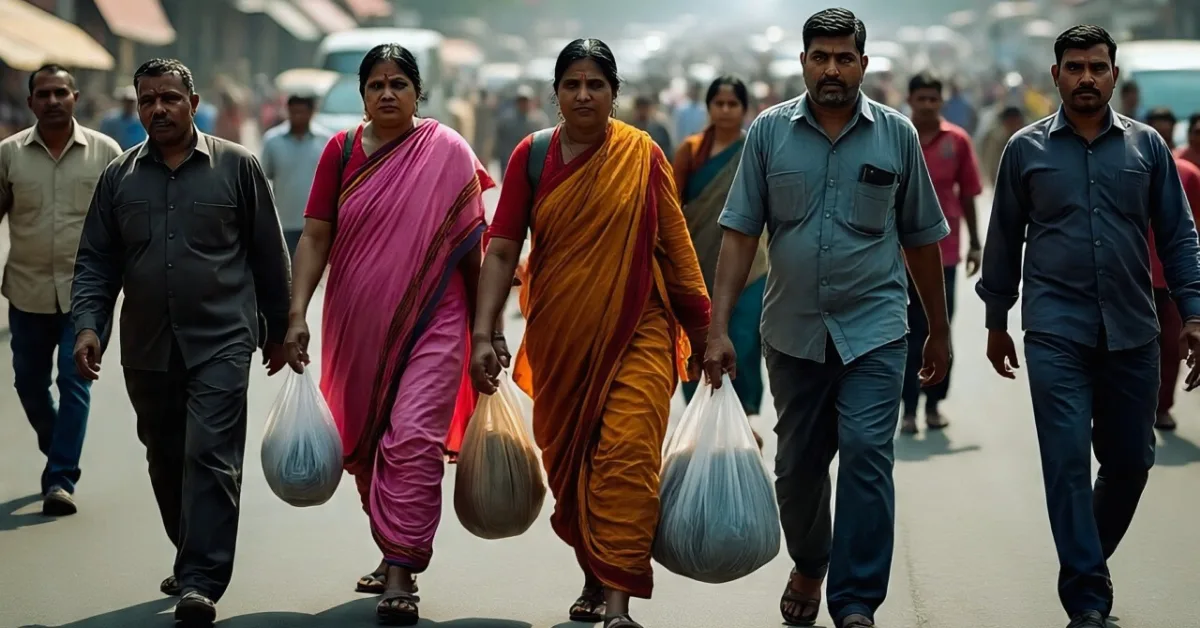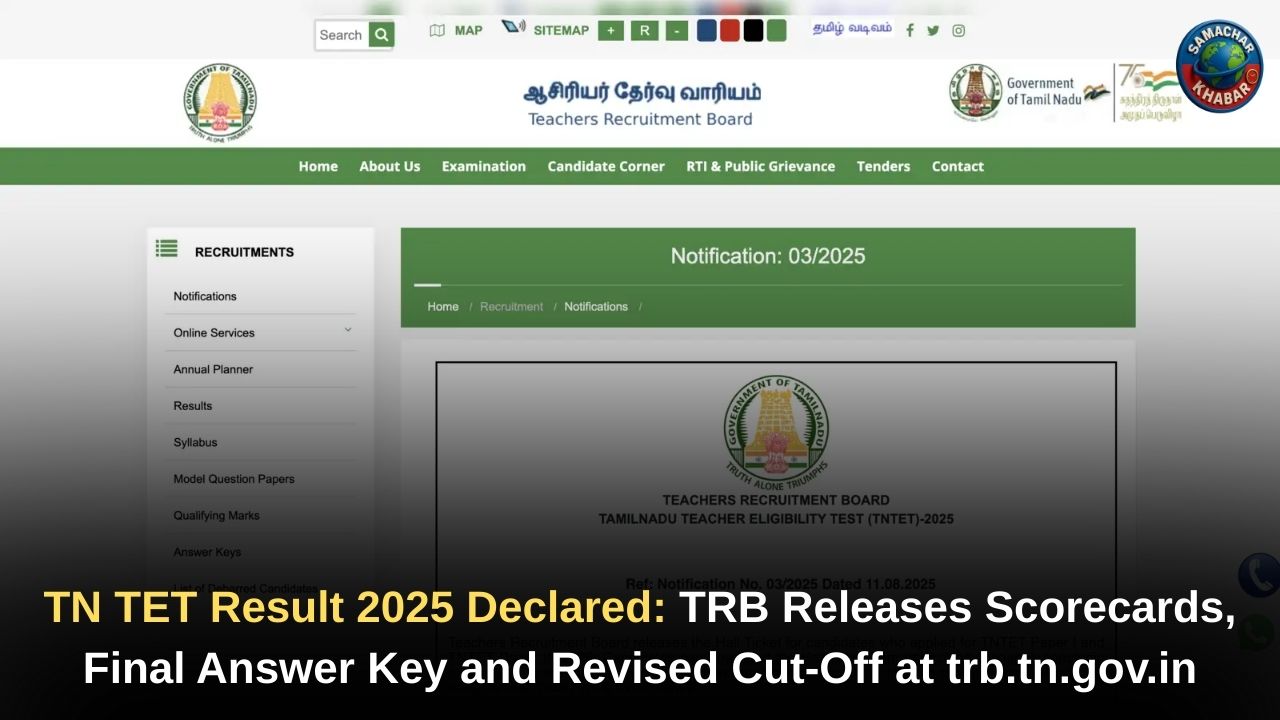A sudden shortage of maids, cleaners, and other informal workers is currently being witnessed in the National Capital Region, as hundreds of migrant workers speaking Bengali suddenly gave up their jobs and homes. With the police verification drives intensifying and fears spreading about voter list revision before elections, actual homes and residential societies in Noida and Gurugram have been greatly affected by the constant coming and going.
Fear and Uncertainty Have Fueled a Mass Departure
In the past two weeks, residents of Noida’s Gaur City and nearby colonies have noticed a strange disappearance of their long-standing domestic staff. Many of these workers hail from West Bengal and nearby areas, and they allege that suspicion of their identity during police checks for illegally entered immigrants, including Bangladeshi and Rohingya nationals, threatened them with detention.
The police started their verification operation in Gurugram in early July, setting up screening centers in areas like Sector 40, Sector 10A, Badshahpur, and Manesar. Despite the officers stating that the checks are legally valid and not focused on Indian citizens, yet the drives have struck fear into the migrant populations. Indeed, some of the people who left had their documents intact: Aadhaar, voter ID, or PAN.
Community leaders estimate between 900 and 1,000 families have left Gurugram in the last week alone, and they’ve often done so under cover of darkness to keep out of notice. They hired these buses collectively or pooled in the money, paying ₹25,000 to ₹30,000 per trip to return to their hometowns.
Disruption to City Life and Services
The impact can be felt on the ground. Gurugram sanitation system still takes its cue largely from migrant waste collectors. Garbage is now piling up in uncollected places along streets and in residential areas, raising concerns about public health. A recent viral post of an expatriate resident termed the city’s condition as that of a “pigsty,” igniting outrage over cleanliness troubles.
Also Read: Gurugram’s Luxury Mask, Toxic Core: The Bandhwari Landfill That’s Swallowing the City’s Future
The upscale housing societies set up along Southern Peripheral Road, Dwarka Expressway, and Sector 70A are also feeling the pinch now-end clients. With cleaners, cooks, and car washers gone, clients are scrambling to hire replacements, sometimes without success. Their daily routine has been disrupted since maintenance schedules are in total disarray.
Migrant Workers speak about harassment and trauma
Those who fled said that they were harassed, arbitrarily interned, interrogated, and in some cases physically intimidated. Others said they were sometimes asked for huge sums of money to be released from custody, irrespective of whether or not their documents were in order, sometimes reportedly as much as ₹5-6 lakh.
Those who have made it back into their hometowns, especially in the North Bengal area, say the emotional scars do remain. Around 700 workers have been confirmed to have returned home, much terrified yet to return to NCR for work. The local representatives are now demanding official police clearance certificates for these persons so that they may establish their legal status and resume work.
Political Backlash Over ‘Targeting’ Allegations
The crackdown had gained sharp criticism from West Bengal Chief Minister Mamata Banerjee, calling it linguistic harassment of Bengali speakers. She charged the Haryana state government and the central agencies of outsiders based on language and ethnicity.
A few Trinamool Congress MPs visited Maidawas village in Gurugram to meet with affected workers. They assured state support and condemned what they called “humiliation” meted out to migrants who came to NCR in search of livelihood.
The human rights activists have also raised fears that the operation risks branding the entire community as outsiders, thereby deepening social divides. They are for citizenship verification being done without intimidation or discrimination.
Authorities Defend the Action
Local authorities say that the verifications are in accord with the usual security measures aimed at identifying all who stay in the country without due residential status in India. No genuine citizens ever got targeted, say the authorities. They claim that detainees were fed and watered and given shelter during the checks.
But the migrant communities simply cannot be reassured. Without intervention, the vacuum in labor here will only continue into the next few weeks in domestic work, waste management, and other essential services.
The Path to True Unity
This crisis demonstrates a broader language and regional divide of identity. Every human being is a child of the Supreme God Kabir Sahib, and therefore, temporal distinctions like Bengali or Haryanvi must be avoided. All social ills-one of fear, exploitation, and mistrust occurs when we forget that we are all spiritually equal. SatBhakti, if accepted with the essence of real spiritual knowledge, can transform hatred and injustice into love and justice.
Elaborating on that, Sant Rampal Ji Maharaj says, “Our true home is Satlok, the eternal abode created by Supreme God Kabir Sahib ji, where one need not work for survival.” There, neither hunger nor disease exists, nor any kind of inequality or suffering. Souls worship the Supreme God for their happiness. No cycle of birth and death exists; we all become immortal. So, the only real antidote to all worldly hurdles is Satlok attained through correct worship. To know more about the true spiritual knowledge you must visit Sant Rampalji ji Maharaj YouTube channel.
FAQs about shortage of domestic workers in Delhi-NCR
1. What has caused the sudden shortage of domestic workers in Delhi-NCR?
Ans. The shortage is due to a mass exodus of Bengali-speaking migrants triggered by police verification drives and fears over voter list revisions.
2. Which areas of Gurugram have been affected by the police checks?
Ans. The checks were conducted in areas such as Sector 40, Sector 10A, Badshahpur, and Manesar.
3. How many families are estimated to have left Gurugram recently?
Ans. Community leaders estimate between 900 and 1,000 families have left in the past week.
4. What impact has the migrant exodus had on city services?
Ans. Garbage collection has slowed, waste is piling up, and residents are struggling without maids, cleaners, and other domestic help.
5. How have political leaders reacted to the crackdown?
Ans. West Bengal CM Mamata Banerjee called it “linguistic harassment,” and TMC MPs visited Gurugram to support affected workers.


















